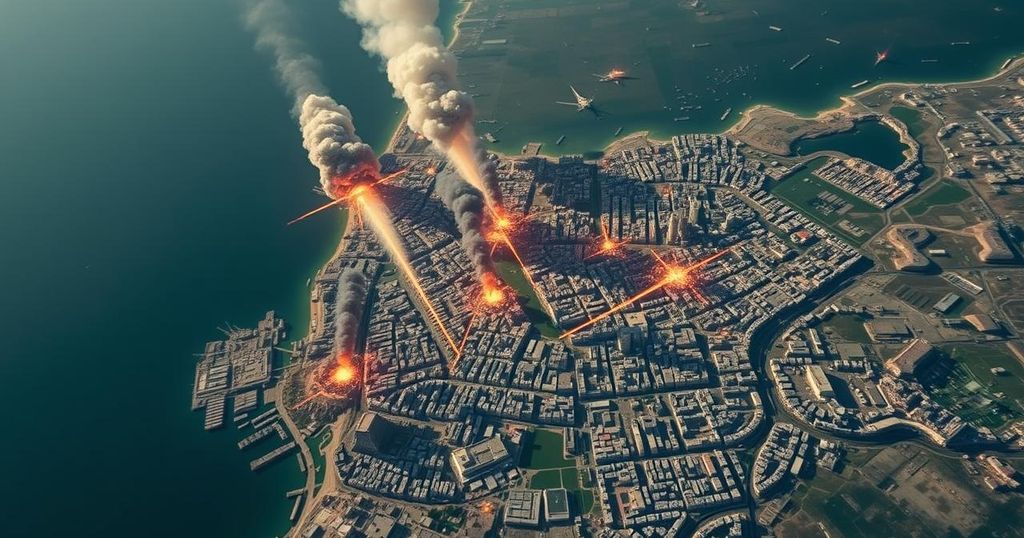Outrage in Lebanon Following Israeli Airstrike on Government Building

An Israeli airstrike on a government building in Nabatieh, Lebanon, killed 16 people, including the city’s mayor, Ahmed Kahil, prompting strong condemnation from Lebanese Prime Minister Najib Mikati. The attack has been characterized as targeting Hezbollah’s infrastructure, though it raises concerns over the legitimacy of striking civilian government facilities. The incident highlights the ongoing humanitarian crisis as civilian casualties rise amid airstrikes across Lebanon.
Lebanon is responding with outrage after an Israeli airstrike on a government facility in Nabatieh resulted in the deaths of 16 individuals, including the city’s mayor, Ahmed Kahil. Caretaker Prime Minister Najib Mikati condemned the Israeli attack as a deliberate targeting of local authorities engaged in discussions concerning the city’s service and relief needs. This incident marks a significant escalation, being the first instance in this conflict where an Israeli strike specifically hit and destroyed a Lebanese government building. Mikati criticized the international community for its silence regarding Israel’s military actions, stating, “This new aggression, coupled with all the crimes committed by the Israeli enemy against civilians, is a mark of a world that is deliberately silent about the crimes of the occupation, which encourages it to persist in its aggression and crimes.” Local media has characterized the attack with headlines such as “Devastation and massacre” and “Israel’s scorched-earth tactics,” reflecting the intense sentiment widespread among the Lebanese public. The Israeli military justified the airstrike by asserting it targeted infrastructure associated with Hezbollah, referring to the sites as command centers and weapons storage facilities. However, the military has not offered specific commentary on the targeting of the municipal building, raising questions regarding the legitimacy of attacking a functioning governmental structure amidst ongoing conflict. Amidst the escalation of hostilities, civilian casualties continue to rise, including deaths among emergency responders and medical teams, with the Israeli military failing to adequately clarify the objectives of its ongoing airstrikes across Lebanon.
The recent airstrike in Lebanon is part of a larger context of conflict between Israel and Hezbollah, which has heightened tensions in the region. Lebanon has witnessed increasing violence due to Israeli military actions, aimed primarily at Hezbollah’s infrastructure, but often resulting in substantial civilian casualties. The attack on the government building represents a notable shift in tactics, as it directly impacts Lebanese governance and public safety efforts. International reactions to Israeli military actions have been mixed, with many critics noting a lack of accountability for violence against civilian populations. As regional instability continues, the responses from Lebanese leadership and local media highlight concerning attitudes towards Israel’s military strategies and their implications for civilian life and governance in Lebanon.
The airstrike in Nabatieh has further exacerbated tensions between Israel and Lebanon, marking a critical escalation in the ongoing conflict. The deaths of local officials and civilians have sparked condemnation from the Lebanese government and raised significant concerns about the targeting of government facilities in warfare. As the Israeli military asserts its actions are in response to threats posed by Hezbollah, the ongoing violence has resulted in profound humanitarian implications, inviting scrutiny from the international community. The silence or inadequacy of responses from global leaders regarding these incidents underscores an urgent need for dialogue and resolution in the region.
Original Source: www.bbc.com








